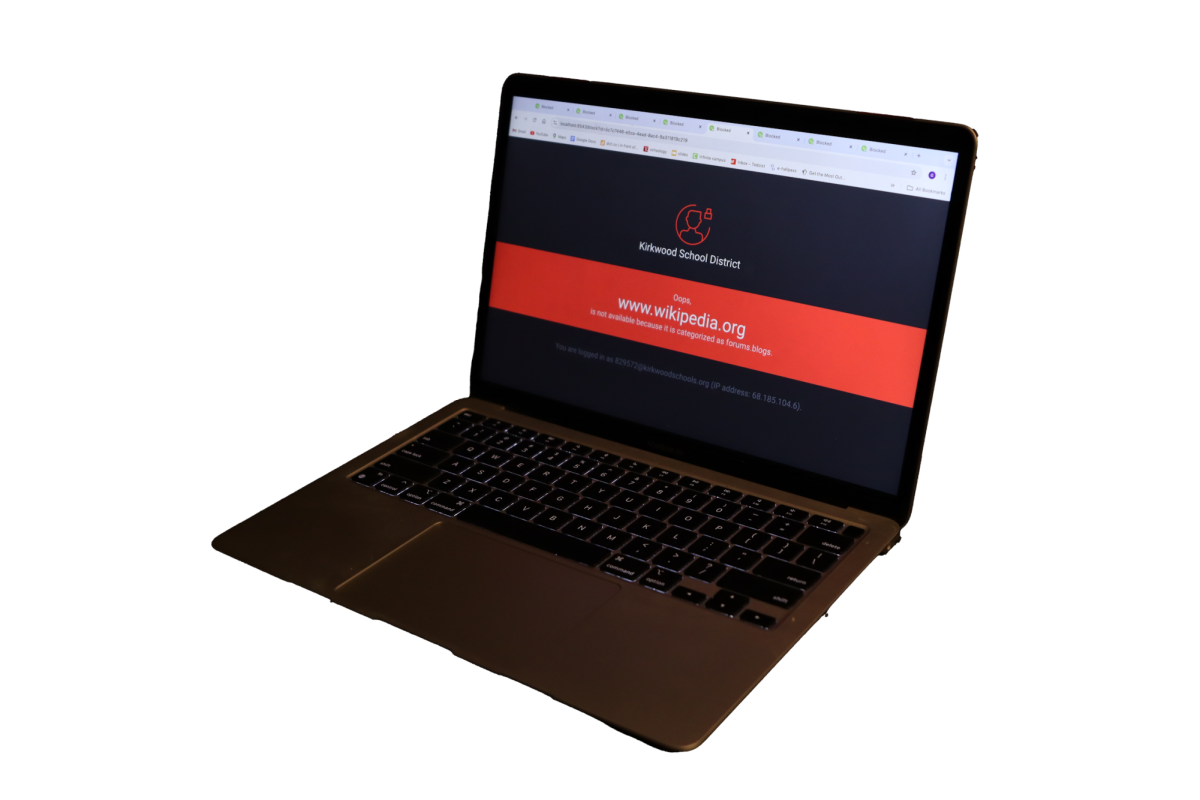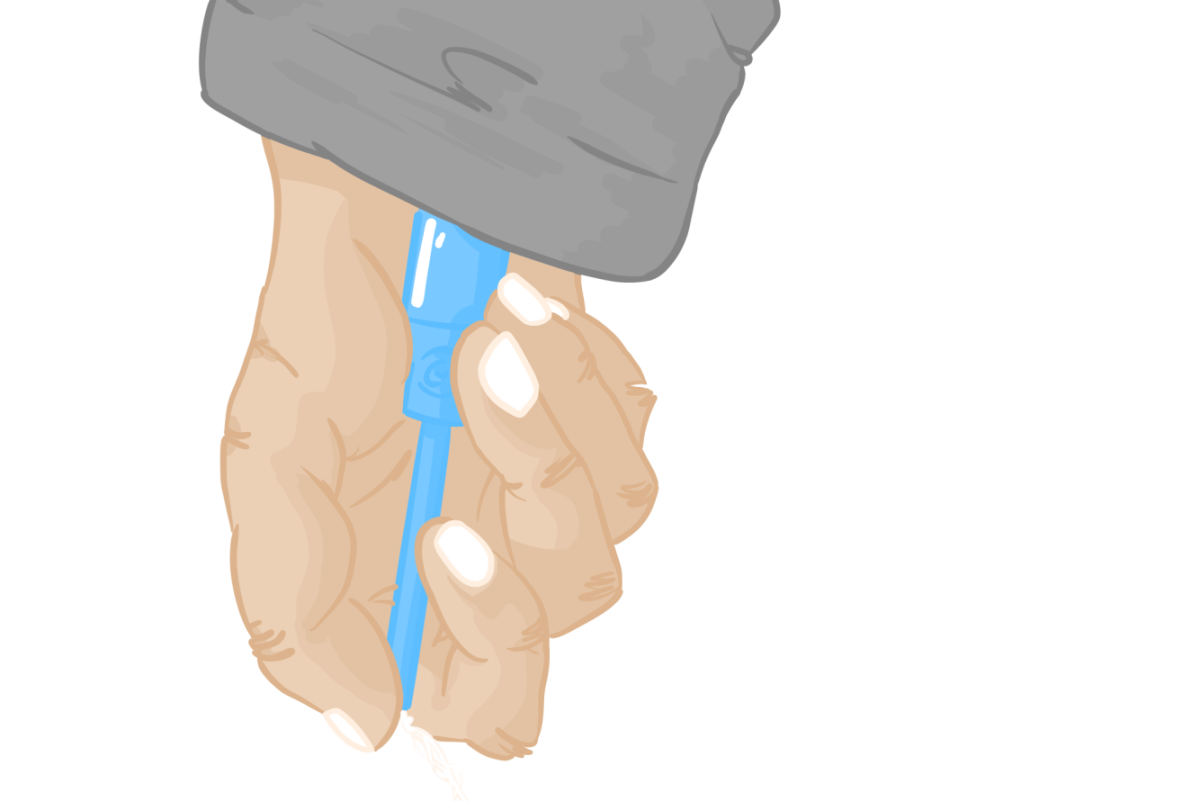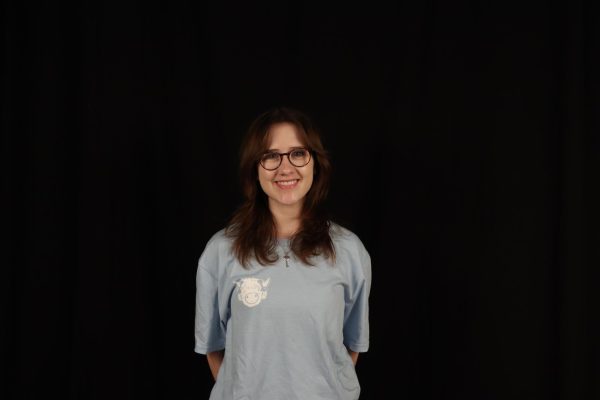 Is security more important than a student’s right to knowledge? KSD seems to prioritize security by cracking down on students’ freedoms. First, it was E-Hallpass and VPN suspensions, now it’s homeroom requests, phone boxes and worst of all, the website blockers. This year, KSD has made a switch from Securly to Lightspeed, which are cloud-based web content filters. Teachers and students across the district find it difficult to access websites and images on their computers that they once were free to use. The administration may only see this as a new security measure, but students find the website blockers are getting in the way of learning.
Is security more important than a student’s right to knowledge? KSD seems to prioritize security by cracking down on students’ freedoms. First, it was E-Hallpass and VPN suspensions, now it’s homeroom requests, phone boxes and worst of all, the website blockers. This year, KSD has made a switch from Securly to Lightspeed, which are cloud-based web content filters. Teachers and students across the district find it difficult to access websites and images on their computers that they once were free to use. The administration may only see this as a new security measure, but students find the website blockers are getting in the way of learning.
The Children’s Internet Protection Act (CIPA) in 2000, first proposed by former Arizona Senator John McCain (R) requires schools to regulate, filter and control the Internet. The goal of this act is not only to safeguard data but to also limit and protect what children see on the Internet such as harmful or obscene information and imagery. According to Kevin Richmiller, director of technology services, despite Securly already meeting CIPA compliance, KSD made the decision to move to Lightspeed because it has more “granularity” and website “reporting” capabilities. Like a fine toothed-comb, Richmiller said Lightspeed sifts through data by key subjects such as “mature content, gambling, drugs and shopping” like Amazon. Since Wikipedia is considered “mature,” it will remain blocked.
From a student’s perspective, especially a high school perspective, it feels like censorship. For teens with higher level classes that often require daily research, having drastic numbers of blocked websites has weakened students’ capability to use their computers. Principal Dr. Seth Harrell and Tashia Nelson, senior technology specialist, said Lightspeed was primarily put in place for new data security measures; however, Richmiller said protecting children from “harmful” content was a national requirement we’ve been following for two decades. Congress is the antagonist behind the beginning of blocked websites. But it was KSD who wanted more fine detailed attention on what we search, the websites we use and the photos that we view. We can all agree that security is important, but should high schoolers and even teachers fall victim to the blocked websites elementary schoolers also have?
On a national scale, children’s safety at school has been a major topic of discussion since Columbine in 1999. A year later, CIPA passed. However, the existing federal laws that shield children from “gun violence,” (which I might add is a blocked phrase on our computers) aren’t working. To me, there seems to be a priority over censorship and protecting data rather than protecting the physical lives of children.
With KSD surpassing CIPA regulations, students do not have full access to even safe websites as they previously had. This is concerning especially in this era of misinformation on the Internet, social media and politics. Typically we are taught how to discern from good and bad sources. Now that virtually all “inappropriate” content is blocked, will we still be able to learn for ourselves what is misinformation or not? In the future when we are adults and have access to the entire Internet, how will we know what is real and what’s fake? Nelson said if we have phones, we are already exposed and used to disinformation. However, at school, there are also phone boxes and research projects that prompt us to use our computers. Do our phones matter when students can’t get basic school tasks done?
KSD created request forms for teachers to fill out whenever they need an educational website unblocked. According to Nelson, there had already been around 150 requests to unblock a website by Oct. 4; that’s more requests than days of school. Accordingly, Harrell said there might be a way for students to fill out this form as well so that they have an opportunity to get a website potentially unblocked. However, Richmiller said there is no formal way for a student to do that. Nonetheless, it does prompt the question of whether a student should be allowed to. Students and staff alike have been faced with this issue; it would only be fair if students, especially high schoolers were allowed to also voice their needs to administrators.
There’s no changing CIPA, so all I can say is that I’m glad I’m 18, I’m thankful I can vote and I’m thankful I’m a senior. I’m thankful this is my last year and I won’t have to deal with the constant micro-managing by E-Hallpass, homeroom sign-up and website blocks. Students and staff are ready for websites to be unblocked, they can fill out as many request forms but that still won’t alleviate the frustrations we face from this issue. All we can do is be patient and hope nothing new is blocked.









